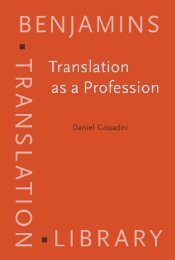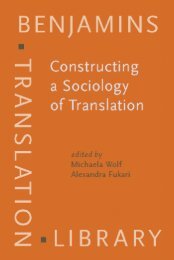Check your Vocabulary for IELTS.pdf
Check your Vocabulary for IELTS.pdf
Check your Vocabulary for IELTS.pdf
Create successful ePaper yourself
Turn your PDF publications into a flip-book with our unique Google optimized e-Paper software.
answers<br />
Answers<br />
Some common examples of silent letters include:<br />
Silent A: February parliament marriage<br />
Silent B: comb bomb womb doubt<br />
Silent C: conscience scene discipline scissors<br />
Silent D: Wednesday handsome<br />
Silent G: campaign design<br />
Silent H: ghost school vehicle rhythm<br />
Silent I: business hygiene nuisance<br />
Silent N: autumn column condemn<br />
Silent T: listen mortgage<br />
Silent U; biscuit colleague (which also has a silent e at the end) guarantee guess<br />
Silent W: answer whole<br />
Silent GH: though thorough weigh height<br />
4. swimming = swimming<br />
We double the last letter of single-syllable words ending with a single vowel and a single consonant when we add a<br />
suffix (e.g., -ing):<br />
swim - swimming run - running dip - dipped<br />
We usually do the same thing if a two-syllable word is stressed on the second syllable:<br />
begin - beginning regret - regrettable prefer - preferring<br />
We do not double the last letter in the following cases:<br />
- when a word ends with w, x or y<br />
- when the suffix begins with a consonant (e.g., bad - badly)<br />
- when a word ends with I and the suffix -ly is added (e.g., playful - playfully)<br />
- when two vowels come be<strong>for</strong>e the final consonant (e.g., weep - weeping)<br />
5. thiefs = thieves<br />
Most nouns are regular. This means that we add an s to make them plural (e.g., car - cars). However, some nouns are<br />
irregular - we either do not add an s to the word to make it plural or we add s plus some other letters.<br />
In nouns which end with a consonant and y, the y changes to i and we add s:<br />
party - parties baby - babies worry - worries<br />
In nouns which end with s, sh, tch and x, we add es:<br />
bus - buses dish-dishes watch - watches box - boxes<br />
In some nouns which end in f or fe, we replace the f with a v and add es.<br />
calf-calves half-halves knife-knives life - lives wife - wives<br />
In some words which end with o, we add es.<br />
cargo - cargoes echo - echoes hero - heroes<br />
Some words do not change at all.<br />
fish, deer, sheep<br />
And some words have their own individual rules:<br />
man - men child - children woman - women person - people<br />
108<br />
6. hopeing = hoping<br />
We drop the e from a word when a suffix which begins with a vowel (e.g., -ing) is added to a word which ends in a<br />
consonant plus a silent e:<br />
hope - hoping tape - taping give - giving immature - immaturity<br />
Peter Collin Publishing. © 2001. For reference, see the English Dictionary <strong>for</strong> Students (1-901659-06-2)

















